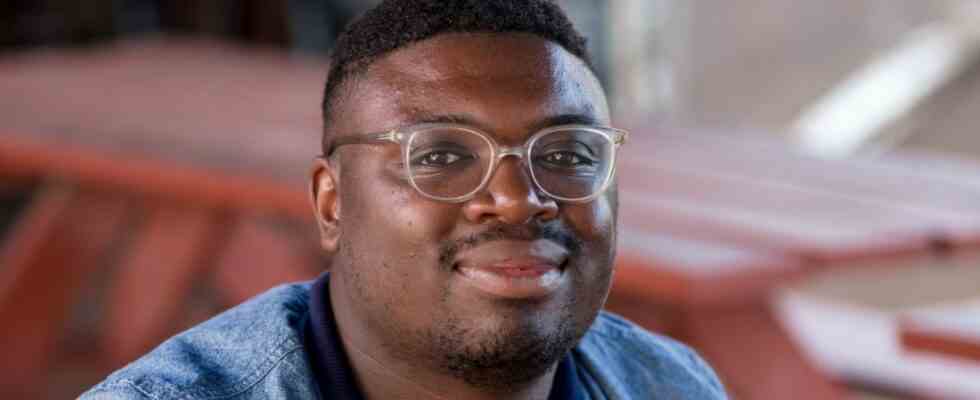With Bryan Washington’s collection of short stories “LOT. Stories from a Neighborhood” in hand, one could easily wander the East End of Houston, Texas, going from one story to another, from the subway station to the park, to a mall, or why not , to a parking lot: The titles of the stories follow the city map. However, such a walk does not necessarily seem advisable. Crime in the East End is nearly 50 percent higher than the national average, and violent crime is over 90 percent. You get a pretty good idea of this from the stories themselves: “Here stolen cars are dismantled,” it says once, “and between broken launderettes the abuelas hang around the corners like scarecrows, in short, there’s no reason to come here, unless , you’re a kid from here. Or broke. Or you’re stranded here like Ma.”
You don’t see anything of Houston’s shiny facade, its oil millionaires and NASA managers. Legal and illegal immigrants gather in the East End, people from Mexico, Haiti, Thailand, Puerto Rico, Vietnam, Guatemala, Cuba and Jamaica, whites are in the minority, and the language spoken here is also a mixed bag accordingly – a basic stock of Spanish vocabulary can be helpful when reading.
Everyday racism and homophobia abruptly turning into physical brutality
So “LOT” is a piece of local literature of a special kind, and in many of his stories the gay author Bryan Washington, who also lives in Houston and was born in 1993, focuses on the everyday racism of the residents of the neighborhood as well as their homophobia, which has suddenly turned into physical brutality.
In seven loosely connected stories, Washington also tells how the relationship patterns of a Jamaican-Mexican immigrant family take shape. The eldest son, Javi, who is around 20 years old, is a loudmouth and good-for-nothing. He deals drugs and otherwise spends his time in bed with neighborhood girls. Later he joins the army and dies in an accident. His sister Jan graduated from college, but then got pregnant by a “white boy”. She now lives with her family in another part of the city. The youngest, whose name Nicholás we only learn in the last story, is the first-person narrator: dreamy, just about to discover his gay sexuality, and his mother’s mainstay in the restaurant she runs on the ground floor of their small house. The father left the family for a white woman from a better neighborhood.
Bryan Washington: LOT. Stories of a Neighborhood. Translated from the English by Werner Loecher-Lawrence. No & But, Zurich 2022. 240 pages, 23 euros.
How to get away from here, whoever manages it somehow. About Nicholás’ mother it says: “Ma’s daughter had left her. Her son had left her. Her husband had left her. So I couldn’t leave her too.” And yet it will be the mother who sells the restaurant and moves back to her sisters in Jamaica; the youngest son has to manage on his own. There is no doubt that he will succeed, which has to do with the gripping and precise way in which he talks about his neighborhood and its people: whoever is so awake will not perish.
Bryan Washington’s debut novel “Things We Don’t Believe In”, which was published in German in 2020 (and was originally called “Memorial”, named after a traditional Houston mall), also takes place in a restaurant and tells of young gay black people – albeit there is a second, exotic location in this book, namely Osaka.
In 2019 he was included in the list of the five most promising American authors under 35
These stories were written earlier and often first appeared in well-known magazines. In 2019, they included him on the National Book Foundation’s prestigious list of the five most promising American authors under 35. At 25! In the new volume, Washington traverses a geographically and socially narrowly defined territory. For example, in a kind of East Side story, a black-and-white pair of lovers face a chorus of neighbors who follow each other in silence for a long time, like the Jamaican beauty Aja and the “white boy” James (“he had something”) in theirs can no longer resist their burning passion – then they bring it up to Aja’s husband Paul, and his revenge takes its course.
In the story about young rent prostitutes, whom a caring and only slightly older man picks up from the street and lets them live with him for a small fee until he gets infected with AIDS, the flat-sharing community implodes at the end. Finally, in another story, two boys convince themselves that they have captured a fantasy creature called “Chupacabra” and try to use it to gain media attention in order to become rich and famous – a puberty story with a fantastic ending.
With great narrative self-confidence, Bryan Washington experiments with a wide variety of subjects, perspectives and pitches. In 2017, Hurricane Harvey smashed into the city, taking with it what no longer had enough resilience: houses, trees, cars, people. After that, gentrification will begin, Houston’s East End will also change, more and more “Blancos” will move into the soon nicely renovated houses. “At some point niggas have to take what they can get,” Nicholás “Ma” gave her son as a rule of life. For this author, however, with his somnambulistic, skilfully told scenes from the lower zones of society, this is not at all the case: Bryan Washington has no reason to be modest.

